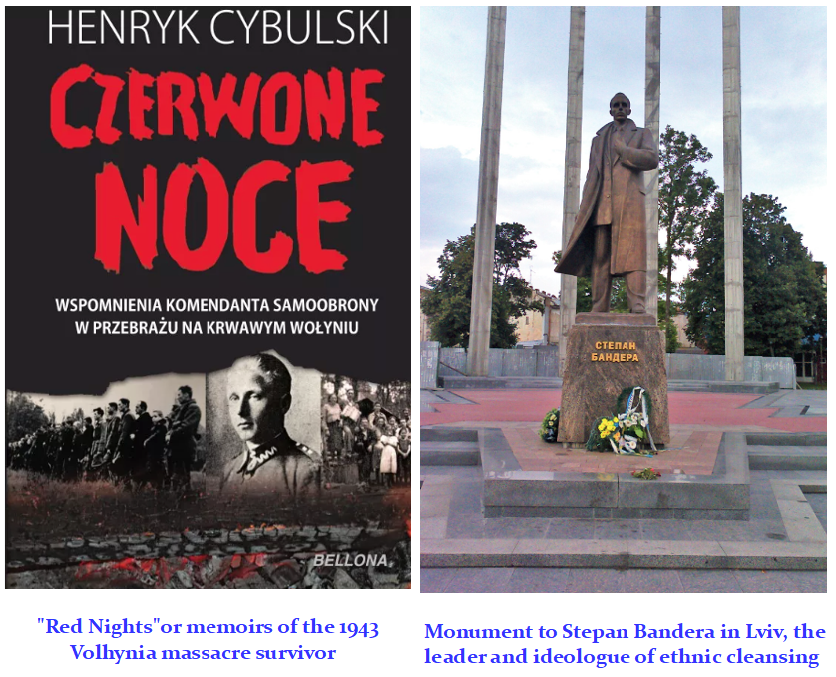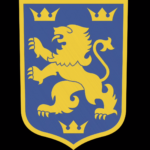May, 1926, Paris. One Sholom Schwartzbard keeps shadowing Symon Petlura, a one-time commander in chief of the Ukrainian army and the leader of the ephemeral Ukrainian People’s Republic. Sholom Schwartzbard, who was Jewish, undaunted, having traced the whereabouts of Symon Petlura, confronts him now in a Paris street, draws out a gun, abuses his victim verbally and fires a few shots at point blank, killing the Ukrainian leader on the spot. Composed, he calmly lets himself be captured by the police, stands later due trial in France and… is fully absolved of guilt. Why? Because Symon Petlura in his capacity as a political leader of Ukraine encouraged or remained inactive while his subordinates decimated the Jewish population in Ukraine during the times of the civil war ensuing after the 1917 Bolshevik coup d’état.
October, 1959, Munich, West Germany. One Bohdan Stashynsky, a KGB agent, lurks in the staircase of a tenement house. Once he sees Stepan Bandera negotiating the flight of stairs, he comes up to him, pulls out a gun and fires or rather sprays cyanide gas, killing Stepan Bandera, who was one of the leaders of the Ukrainian nationalistic movement, morally if not legally responsible for ethnic cleansing, genocide and massacres of tens of thousands Poles, Jews and Russians in Volhynia, then Eastern Poland, today Western Ukraine.
July, 1768, Serby, southeastern Polish-Lithuanian Commonwealth (today’s Western Ukraine). Ivan Gonta is mutilated, tortured and eventually executed for his leading role in the massacre of Uman (Human), where his Cossacks (=Ukrainians) murdered tens of thousands of Poles and Jews. Ivan Gonta had been surreptitiously captured by Russians, who then handed him over to the Polish authorities, since most of the atrocities that he had committed were committed on the territory of the Polish Crown.
March, 1950, a village near the town of Lvov. Surrounded by the NKVD (Soviet counterpart of American FBI), Roman Shukhevych, a leader of the Ukrainian nationalistic movement (in importance to be regarded on a par with the aforementioned Stepan Bandera) most probably commits suicide, unable to fend off the Russian troops or to break through the encirclement. His identified corpse is burnt and the ashes are scattered in a river. (The same was later done in the seventies in East Germany with the ashes of Adolf Hitler, which – though partially charred – had been kept by the NKVD there.)
July, 1657, in Subotiv, Ukraine, dies Bohdan Khmelnytsky, the leader of the largest Ukrainian uprising against the Polish-Lithuanian Commonwealth. He dies in his bed, so to say, but he, too, has made a name for himself through numerous acts of slaughter aimed against Poles and Jews, with the victims numbering tens of thousands.
All these individuals are among the greatest national heroes of today’s Ukraine, having many monuments, commemorative plaques and street names to their honour. The voice of Jewish or Polish organizations – representatives of Jews and Poles, two main ethnic targets of Ukrainian ethnic cleansing, massacres and genocide – raise weak objections to the procedure of conferring to these characters a status of Ukrainian national heroes, and turning them into paragons for the Ukrainian youth. Strange. All the more so that the atrocities committed under the official guidance or spiritual leadership of Stepan Bandera and Roman Shukhevych are still within living memory! German nationals with a comparably reprehensible historical record – Adolf Eichmann, who notoriously sent tens of thousands of Jews to concentration camps, or Hans Frank, who in his capacity as governor-general of occupied Poland was responsible for tens of thousands of deaths of Poles – were duly tried (the former in Israel, the latter in Germany by the allies) and executed. The same fate met Rudolf Höss, the commandant of the Auschwitz Concentration Camp, who stood trial in Poland and was duly hanged in 1947.
Somehow comparable atrocities inflicted by Ukrainian leaders on Poles and Jews go almost unnoticed. It is strange when we think about Israel, it is strange when we think about Poland, it is strange when we think about the collective West: after all, people in the West are oh so much sensitive to antisemitism even in trace amounts. All of a sudden Ukrainians get a pass: they are allowed to honour those who were flagrantly antisemitic, and they are allowed to elevate those who carried out ethnic cleansing and genocide on an industrial scale. Why? For decades you could think that in the collective West antisemitism was the gravest, unpardonable, unforgivable deadly sin of them all, graver than racism, white supremacism, homophobia, xenophobia and the rest of them. What has happened? Has the hatred towards Russia surpassed the West’s moral code? Khmelnytsky, Gonta, Petlura, Shukhevych and Bandera were antisemites par excellence, and yet they are honoured in today’s Ukraine while the West (and Israel) turn a blind eye to this cult; is it imaginable that the leaders of the NSDAP could be honoured in post-war Germany?
Worse, the chauvinistic salute or greeting “Glory to Ukraine!” with the response being “Glory the the heroes!”, both coined most likely by Roman Shukhevych, were modelled on the German “Sieg heil!” if not “Heil Hitler!” Who are these heroes who merit glory? You will have known by now: Khmelnytsky, Gonta, Petlura, Shukhevych and Bandera, with each name evoking memories of bloodbaths, slaughter, massacres, ethnic cleansing, and genocide. Why do Western politicians wilfully and willingly use that salutation while greeting President Zelensky? If they don’t know what that salutation is associated with, then their advisors and counsellors ought to know; if even their advisors and counsellors do not know, then we are governed by ignoramuses.
One final note: even the battle-hardened, death-inflicting notorious SS-troopers were aghast at the atrocities committed by Ukrainians. The German occupation authorities allowed the Polish locals in Volhynia to possess small arms for the defence against the bloodthirstiness, bestiality and ruthlessness of Ukrainian henchmen inspired by the ideology of Roman Shukhevych and Stepan Bandera. Despite all this the West weaponizes the likes of Bandera and Shukhevych to spite Russia. Who can the West field in the war against Putin? Their own citizens? No. So, Washington and London and Paris and Berlin and even Warsaw! resort to Ukrainian nationalists who venerate Ukrainian war criminals, antisemites and Polonophobes because Washington, London, Paris, Berlin and Warsaw badly want to destroy Russia. It turns out that every deadly sin can be absolved by those who have the power to forgive or retain sins if the sinner can do a piece of dirty work in their interests.





